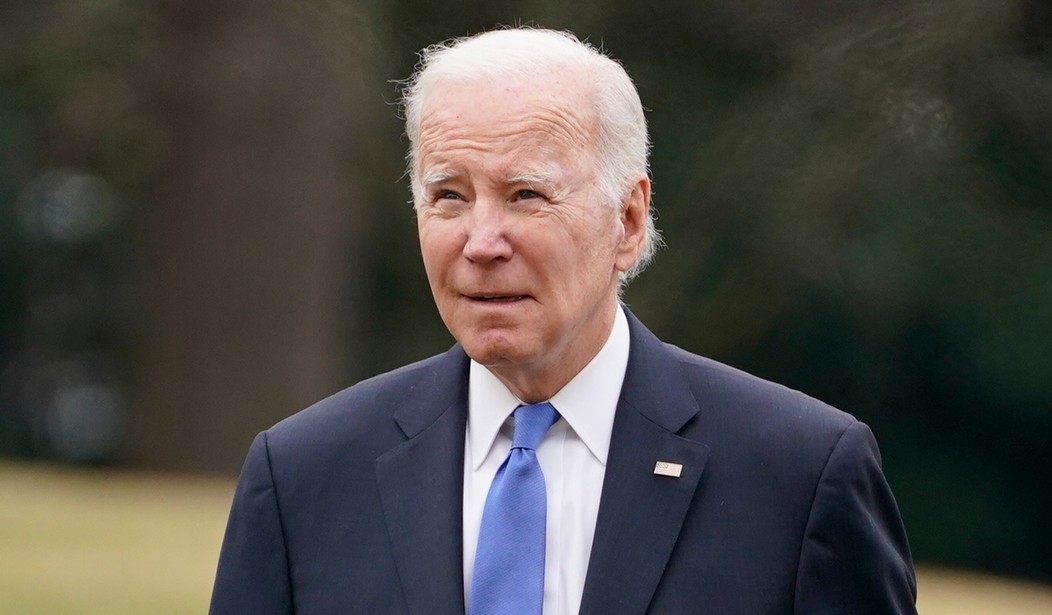From groceries to baby formula and microchips to cold medicine for children, the supply chain issues that have arisen and grown into crises on President Biden and his administration's watch are nothing new. But worsening shortages in the supply of drugs used to treat cancers are drawing dire warnings from medical professionals and those who rely on such medical interventions to save lives.
According to the American Society of Health-System Pharmacists, shortages of critical drugs are "the worst they've been in a decade" due to "[quality control issues, selected plant closures and other manufacturing woes" that have seen oncology drugs "hit particularly hard in recent months," Axios reported Tuesday.
"People will die from this shortage, for sure," came another stark warning from the University of Alabama's Jonathan McConathy in The Wall Street Journal.
Among the medicines running critically low or being rationed are chemotherapy drug methotrexate, cisplatin, and fluorouracil. Already, Pluvicto — a life-extending drug used in cases of metastatic prostate cancer — has run out and won't be available to patients for months, Axios added. BCG, used in bladder cancer treatments, was also "being rationed or was not available for use at all."
On CNN, a leader of the End Drug Shortages Alliance called the situation "a terrible crisis" and called for the Biden administration and pharmaceutical industry to "be doing everything we can to give every single one of these patients the best chance of survival."
So, what is the Biden administration doing? According to Axios, the FDA's Chief Medical Officer Hilary Marston explained that her agency "works with manufacturers as much as it can, such as quickly approving acceptable workarounds," but that seemingly has not worked — as evidenced by the rationing and exhaustion of supplies now coming into focus.
Recommended
As is typical for the Biden administration, Marston sought to push blame toward the industry, saying "the underlying reality of this market remains what it is." That is, its the industry's own fault that there are issues and the Biden administration shouldn't be blamed, which usually means the White House should, in fact, bear some blame.
Another FDA official told Axios that the Biden agency was "working with those companies [making oncology drugs] to not only increase production but also working with them [to] qualify additional supplies and sites and anything else they can do to increase supply."
Still, the Biden administration is — at best — being reactive rather than proactive to ensure Americans have adequate access to life-saving or -extending drugs. If these steps they claim are being taken now to increase production, why weren't those steps taken before the supply of necessary medications had entirely run out or necessitated rationing?
Joe Biden claimed the supply chain crisis “didn’t actually occur”
— GOP (@GOP) March 21, 2023
But on his watch, we’ve seen shortages of baby formula, amoxicillin, children’s medicine, behavioral medication, antibiotics, diabetic medication, and now critical cancer treatments.https://t.co/Q88wpvSrQh
Yet again, the Biden administration seems to have failed to recognize a potential looming shortage, waited until supplies were too low to intervene in a way that would sustain enough drugs for treatment, and is now scrambling to address a growing — and potentially deadly — crisis that could and should have been prevented.
All the while, the president and his administration have sought to avoid talking about their failures.
Karine Jean-Pierre chuckles at the large number of medication shortages there have been on Biden’s watch. pic.twitter.com/TQTomzqqCd
— RNC Research (@RNCResearch) March 8, 2023
President Biden himself tried to play ignorant and suggested that no one knew what supply chains were until recently:
Biden: "I wonder how many people knew...about the 'supply chain' before the pandemic. Everybody knows what a supply chain is now!"
— RNC Research (@RNCResearch) March 9, 2023
🤔 pic.twitter.com/6PAjmzQ9iT
On that end point, Biden is right: everyone does know what a supply chain is now, but that's because most of them broke down on Biden's watch and led to empty store shelves, ships backed up for miles outside U.S. ports, and critical shortages of medication and necessary drugs.
























Join the conversation as a VIP Member